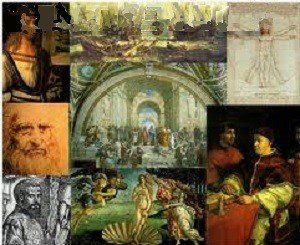
Arquivo para January 13th, 2017
Consciousness between epistemology and method
It is common sense that what we call interpretation is intimately bound up with the method and worldview that we have, but in practice we stay in the “it’s my opinion.”
method and worldview that we have, but in practice we stay in the “it’s my opinion.”
Gadamer goes deeper into this theme by saying that “what modern consciousness assumes precisely as ‘historical consciousness’ – a reflective position in relation to all that is transmitted by tradition.” (page 18), that is, “historical no longer beatifically hears the voice that comes to him from the past, but when he reflects on it, he re-places it in the context in which it originated, in order to see the relative meaning and value that are proper to it “(idem) .
And this sentence of interpretation “goes back to Nietzsche, according to which all statements derived from reason” are susceptible of interpretation “(p. 21).
However, he returns to Hegel to clarify that “the human sciences possess with the natural sciences, a link that distinguishes them precisely from an idealistic philosophy: the human sciences also pretend to constitute themselves as legitimate empirical sciences, free from all metaphysical intrusion, and They reject all philosophical construction of universal history (idem), and here we enter into the question of method.
The idea of adopting scientific methods of the natural sciences prevented the human sciences from taking a “radical consciousness of themselves” (idem), and asks at the end of the paragraph: “Why not rather the old Greek concept, Of method should prevail ? “(Page 21)
Aristotle uses this to explain the question of method: “The idea of a single method, which can be determined even before investigating the thing, constitutes a dangerous abstraction, it is the very object that must determine the proper method to investigate it”
The Brazilian translation has 71 pages, is easy and simple to read, and I consider it useful for an introduction to Gadamer’s masterpiece “Truth and Method”.
Hans-Georg Gadamer, “The Problem of Historical Consciousness,” in “H.-G. Gadamer,” special issue, Graduate Faculty Philosophy Journal 5:1, 1975, page number is brazilian edition
Consciência entre a epistemologia e o método
Sabe-se no senso comum que o que chamamos de interpretação está intimamente ligado ao método e visão de mundo que temos, mas na prática, ficamos no “é minha opinião”.
Gadamer vai mais fundo neste tema, ao colocar que “aquilo que a consciência moderna assume precisamente como ‘consciência histórica´- uma posição reflexiva com relação a tudo que é transmitido pela tradição.” (pag. 18), ou seja, “a consciência histórica já não escuta beatificamente a voz que lhe chega do passado, mas, ao refletir sobre a mesma, recoloca-a no contexto em que ela se originou, a fim de ver o significado e o valor relativos que lhe são próprios” (idem).
E sentencia: “esse comportamento reflexivo diante da tradição chama-se interpretação” (pag. 19), e explica que essa noção de interpretação“ remonta a Nietzsche, segundo o qual todos os enunciados provenientes da razão“ são suscetíveis de interpretação” (pag. 21).
Entretanto retorna a Hegel para esclarecer que “as ciências humanas possuem com as ciências da natureza, vinculo que as distingue precisamente de uma filosofia idealista: as ciências humanas possuem igualmente a pretensão de se constituir como legítimas ciências empíricas, livres de toda intrusão metafísica, e recusam toda construção filosófica da história universal (idem), e aqui entramos na questão do método.
A ideia de adotar métodos científicos das ciências da natureza, impediram que as ciências humanas tivessem procedessem a uma tomada de “consciência radical acerca de si mesmas” (idem), e pergunta ao final do parágrafo: “Porque não antes o conceito antigo, grego, de método deveria prevalecer?” (pag. 21)
Utiliza Aristóteles para explicar a questão de método: “a ideia de um método único, que se possa determinar antes mesmo de investigar a coisa, constitui uma perigosa abstração, é o próprio objeto que deve determinar o método apropriado para investiga-lo” (idem).
A tradução brasileira tem 71 páginas, é de leitura fácil e simples, e considero útil para uma introdução na obra prima de Gadamer “Verdade e Método”.
GADAMER, H.G. O problema da consciência histórica, 3ª. Edição. Rio de Janeiro: FGV, 2006.

